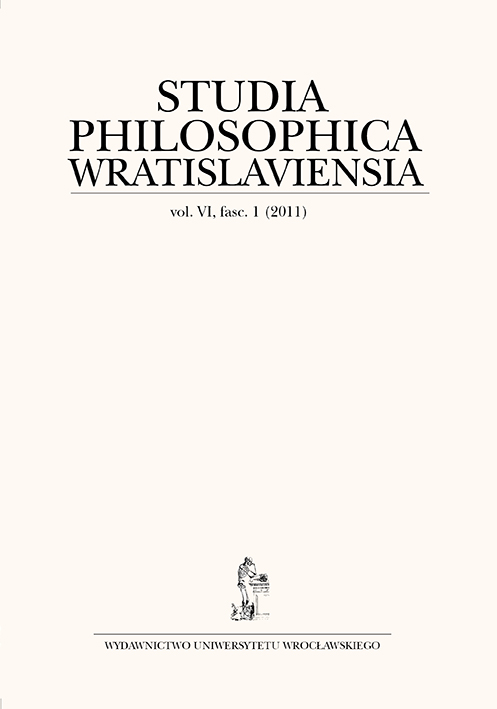

Artykuły

Textvergessenheit in the Historico-Philosophical Inquiry
I argue that many interpretations of Kant’s philosophy suffer from what I call “Textvergessenheit,” and that the remedy against it is what I call “kommentarische Interpretation.” By “Textvergessenheit” I mean that, despite all appearances, there are no really close, detailed, exegetical and reconstructive interpretations of Kant’s texts; and by “kommentarische Interpretation” I mean interpretations that are just this: close, detailed, exegetical and reconstructive. The main purpose of “doing history of philosophy” “Philosophiehistorie” and thus the main purpose of interpreting philosophical texts is to understand what they mean; it is not to fi nd out whether what the text claims to be true really is true although asking this question is a part of the process of interpretation itself. The ultimate aim of reading a philosophical text is to understand, and this means: to reconstruct the theory and arguments put forward by its author. Once it is clear what an argument says, we can relate to it, critically or affirmatively, or whatever; but what exactly the argument really says, is never obvious. Of course, no one will argue that we should not read Kant’s text carefully. Yet, since it is a widely held belief that, contrary to what I claim, there are close readings of Kant’s text, I will provide examples that, as a matter of fact, this is not the case; Textvergessenheit is a fact of philosophical life.